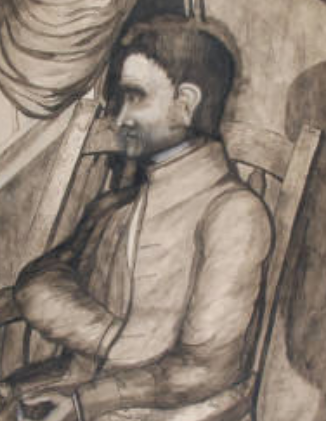By Lynn Burnett
Born in 1720, John Woolman was an early abolitionist. He played a large role in pushing Quakerism into a strong antislavery commitment… a commitment that helped ignite a full-fledged abolitionist movement a century after his birth.
One of the formative spiritual moments in John Woolman’s life occurred during his childhood: coming across a bird’s nest, he starting throwing rocks at the mother bird to see if he could hit her. When he killed her with a stone, “he was filled with remorse, thinking of the baby birds who had no chance of survival without her. He got the nest down from the tree and quickly killed the hatchlings, believing it to be the most merciful thing to do. This experience weighed on his heart.” John became determined to show kindness towards all living things. He later became a vegetarian and refused to ride in horse-drawn carriages, given the regular abuse of the horses.
The spiritual inclinations that John experienced as a child were supported and deepened by his Quaker community, and guided him towards an antislavery position. As a successful trader in his mid-twenties who sometimes helped his customers write their wills, he refused to include slaves in the wills and tried to convince his customers to instead free their slaves upon their death. John Woolman soon gave up business completely, out of the feeling that the pursuit of profit was a distraction from his spiritual pursuits.
Freed from his business obligations, John travelled extensively, meeting with Quaker chapters hundreds of miles apart to express his concerns about slavery. He worked on a very personal, individual level with many Quakers, helping to guide them towards the decision to free their slaves. During his travels, when John stayed with slaveholders he modeled his antislavery stance in his interactions with slaves: for example, he always paid slaves for any work they did attending to him. He also “refused to be served with silver cups, plates, and utensils, as he believed that slaves in other regions were forced to dig such precious minerals and gems for the rich.” He also traveled to England to help Quaker communities take a stand against the slave-based cotton industry that flourished in that country.
Due to the efforts of John Woolman and others like him, by the end of the American Revolution almost all Quakers in North America had freed their slaves, and had ended any business involvements with the slave trade. In the decades to follow, the Quaker community remained a persistent antislavery voice that would play a vital role in the era of abolition.
Additional Resources
Books
John Woolman: The Journal and Major Essays of John Woolman.
Thomas P. Slaughter: The Beautiful Soul of John Woolman, Apostle of Abolition.
Articles
Christianity Today entry.
Quaker Info: Collection of articles by and about John Woolman. (At bottom of article.)
Quakers in the World entry.
Wikipedia entry.
Other Resources
